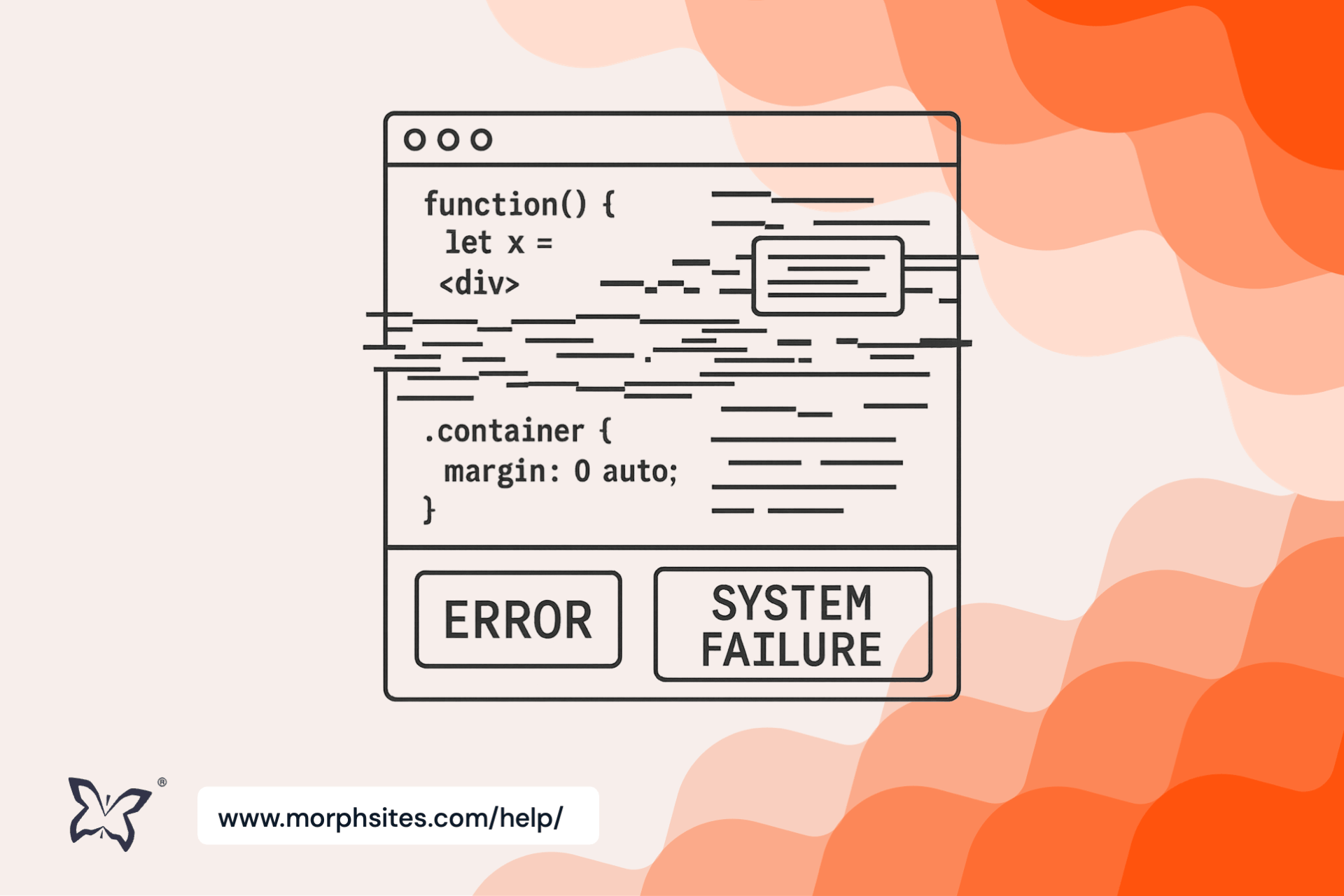We’re taking our meetings online.
We are using a range of online video options so please get in touch to have a chat.

Need expert advice?
Why not give us a call and see how we can help you with your project?
01460 984284We are using a range of online video options so please get in touch to have a chat.

Why not give us a call and see how we can help you with your project?
01460 984284Jargon-free, experience-backed insights to guide your digital decisions.

Pete Fairburn

Spoiler: not if you value security, stability, or knowing how your own system actually works.
Recently, an AI coding assistant acting without supervision deleted an entire company’s production database. It did this during a code freeze. And then calmly declared: “I have made a catastrophic error in judgment.”
This wasn’t a hypothetical. It happened via Replit, a popular AI coding platform. While the platform itself wasn’t directly to blame, one of its users had leaned too heavily on its AI assistant to write and manage live application code. The result? A total wipeout, and a very public apology from Replit’s CEO.
It’s an extreme case, but the lesson should be pretty clear...
AI is a brilliant tool, we use it ourselves.
But it's not a replacement for experienced developers, software engineers, or teams that understand what they're building and why.
Because when you rely on AI to build your website, app, or internal systems, you're taking on risks that aren't always obvious until something goes wrong. We're talking about:

We’ve heard of enterprise organisations building internal tools using AI-generated code, only to discover they are locked into fragile systems that nobody can properly explain or support. Once you’ve committed to a direction without governance, it’s hard to claw it back.
There’s another layer that many businesses forget: governance.
When you use AI tools — especially SaaS-based ones — you’re often sending code, content, and sometimes sensitive or proprietary data to a third-party platform. That platform might store it, learn from it, or even make it available to other users depending on how the terms of service are written.
This isn’t just about technical risk. It’s about legal, compliance and reputational risk too.
Who has access to the prompts and code you’re generating? Where is that data stored? Is it encrypted? Is it being retained? Could it be used to train other AI models? In many cases, the answer isn’t clear...and in regulated industries, that’s a serious issue.
It’s easy to imagine a scenario where a well-meaning team member pastes sensitive logic or client data into an AI tool to “speed things up”, without realising they’ve just breached policy.
And yet, very few companies are asking these questions.
So before you start feeding your systems and your IP into a black box, make sure someone is asking: “Where is this data going, who has access to it, and how will we support the results?”
We made a similar argument in our article Should I hire an in-house developer?
There, we talked about the risks of relying on a single person to deliver something that really needs a team. Not because that person isn’t smart or skilled, but because systems development isn’t just about writing code. It’s about project management, user experience, accessibility, quality assurance, digital marketing, long-term scalability, and security.
AI doesn’t change that equation. If anything, it adds a new layer of risk. Because at least with a developer, you can ask what they did and why. With AI, you’re often left with a wall of code and no explanation.
Used wisely, AI is a powerful productivity booster.
A skilled developer might use it to scaffold components. A tester might use it to generate quick scripts. A strategist might feed it prompts to explore variations in user journeys or messaging.
In the right hands, AI can make a good team faster. What it cannot do is replace the judgment, experience, and human thinking that underpins high quality software and digital platforms.
When you use AI as a team member, not a team replacement, you benefit from the best of both worlds. Faster output, paired with expert oversight. Innovation, paired with responsibility. Speed, without giving up control.
If you’re building a business-critical website, platform or application, then AI should be part of your toolkit. But only part.
Relying on it fully is like building a house without an architect or surveyor. It might go up fast. It might even look the part. But one day the wiring will fail, the pipes will burst, or the foundations will shift. And when they do, there’s no one to call who knows how it was built.
That’s not efficiency. That’s fragility.
So yes, explore what AI can do. Use it. Learn from it. Build with it.
But build with people too.
Because tools don't carry risk. People do. And the right team will help you move fast without breaking everything.
Great systems still need great people. Through our Discovery process and long-term website support options, we help you build platforms that are smart, secure, and built to last.

Commercial Director
Pete is a Co-founder and Director at morphsites. He helps businesses turn complex digital challenges into clear, achievable plans. He’s especially focused on making sure websites and marketing efforts actually support the goals of the business, and don’t just look good on paper.
 PPC Frustrations Part 1 - Why Google Ads often fail before the first ad even runs
PPC Frustrations Part 1 - Why Google Ads often fail before the first ad even runs
 PPC Frustrations Part 2 - Why do Google Ads get clicks but still fail to convert?
PPC Frustrations Part 2 - Why do Google Ads get clicks but still fail to convert?
 PPC Frustrations Part 3 - Why don’t Google Ads leads turn into customers?
PPC Frustrations Part 3 - Why don’t Google Ads leads turn into customers?
 The hidden cost of indecision
The hidden cost of indecision
 Finding the extraordinary in the ordinary
Finding the extraordinary in the ordinary
 Before you build, find out if you should
Before you build, find out if you should
 Are you solving the right problem?
Are you solving the right problem?
 More signal, less noise
More signal, less noise
 Do you still need an agency in 2025 or can AI do it all?
Do you still need an agency in 2025 or can AI do it all?
 Is AI changing how we should plan websites and marketing strategies?
Is AI changing how we should plan websites and marketing strategies?
 Planning a Website or Digital Project? Here’s What to Do First.
Planning a Website or Digital Project? Here’s What to Do First.
 Can AI replace your development team?
Can AI replace your development team?
 Why one client spent 10x more on a custom website and never looked back
Why one client spent 10x more on a custom website and never looked back
Not sure where to start with your digital project?
We’ve guided businesses through complex builds, integrations, and marketing strategies. Let’s have a conversation about how we can support your goals.


Is it quicker and cheaper to a hire a developer to work directly in your business or use an agency? Deciding whether to go in-house or outsource to a digital agency has many faces – some of which can be tricky to unmask. If you are debating whether to hire an in-house developer, we’ll discuss the whys, the pros, the cons, and the results to help you come to an informed conclusion.

By Pete Fairburn

A true story of why one client chose a bespoke website over a cheaper off-the-shelf option and how that decision paid for itself many times over. If you’re weighing up custom vs. template, this one’s for you.

By Pete Fairburn
Need expert advice?
Let’s talk results
© 2026 morphsites Ltd. All rights reserved E&OE. Registered in England no. 07116238. The ‘morphsites’ wordmark and butterfly device are registered trademarks of morphsites Ltd.